Filter by

On Water
When taking a drink is as easy as turning a tap, it is easy to forget that our water supply is fragile and that hundreds of millions of people do not have clean drinking water or proper sanitation.The human impact on our land, the oceans and the climate is endangering our future. In a world accustomed to instant gratification and immediate consumption, we need more than ever long-term thinking …
- Edition
- -
- ISBN/ISSN
- 9789286143199
- Collation
- -
- Series Title
- -
- Call Number
- 650

On Inequality (Big Ideas)
Does Europe have an inequality problem? Amid the COVID-19 pandemic, many Europeans are certainly struggling. The rise of populist movements is another signal that something is awry. Many Europeans no longer see their economy as fair. But is this a problem of too much inequality, or just a problem of ideology? Is inequality even a bad thing? We need to consider the statistics on economic inequal…
- Edition
- -
- ISBN/ISSN
- 9789286149351
- Collation
- -
- Series Title
- -
- Call Number
- 650

On Inequality (Big Ideas)
Does Europe have an inequality problem? Amid the COVID-19 pandemic, many Europeans are certainly struggling. The rise of populist movements is another signal that something is awry. Many Europeans no longer see their economy as fair. But is this a problem of too much inequality, or just a problem of ideology? Is inequality even a bad thing? We need to consider the statistics on economic inequal…
- Edition
- -
- ISBN/ISSN
- -
- Collation
- -
- Series Title
- -
- Call Number
- 650
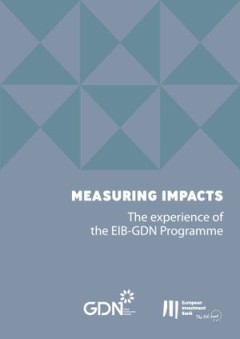
Measuring impacts – The experience of the EIB-GDN programme
Measuring, understanding and communicating the EIB’s development impact is a key strategic priority for the European Investment Bank (EIB). In partnership with the Global Development Network the EIB started the Programme in Applied Development Finance in 2017, to deepen understanding of results and impact of operations under the Impact Financing Envelope (IFE) for Africa Caribbean and the Pac…
- Edition
- -
- ISBN/ISSN
- -
- Collation
- -
- Series Title
- -
- Call Number
- 650
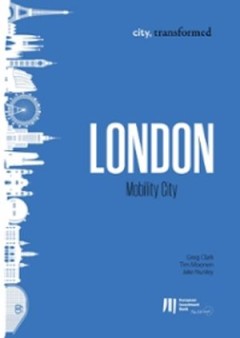
London : Mobility City
Despite the uncertainties of Brexit, London continues to be rated as a leading location in Europe and the world for business, knowledge, and talent. But 30 years ago, when London had no citywide government, a transport system in crisis, and no successful track record of continuous large-scale upgrades to the urban fabric, this scenario would have seemed highly unlikely. In this essay we examine…
- Edition
- -
- ISBN/ISSN
- 9789286138959
- Collation
- -
- Series Title
- -
- Call Number
- 650
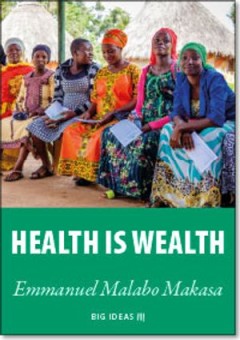
Health is wealth
Surgical intervention saves lives, but health policies in the developing world have often been too feeble or too focused on treating specific emergencies, rather than ensuring that everyone has access to true universal healthcare. Many rural areas in Africa still have high maternal and infant death rates because there are no local surgeons. Many children drop out of school because their untreat…
- Edition
- -
- ISBN/ISSN
- -
- Collation
- -
- Series Title
- -
- Call Number
- 650

Life in Cyberspace
Internet is a real place. Every time we switch on our computers, use a program or an application, or log in to a social media site, we enter a virtual space made up of worlds, domains, forums and rooms. But we behave differently when we interact with technology: technology amplifies and accelerates our deeds; it can help us find useful information, benefit from a wide range of services and stay…
- Edition
- -
- ISBN/ISSN
- 9789286142956
- Collation
- -
- Series Title
- -
- Call Number
- 650
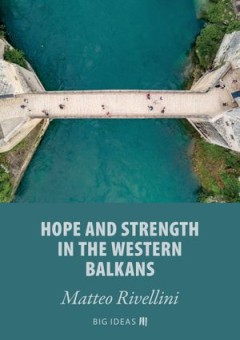
Hope and strength in the Western Balkans
The Western Balkans have been a crossing point between Central Europe and the East for centuries. Devastated by tragic conflicts, nationalism and neglected investments, the Western Balkan countries are striving to find a new equilibrium. Citizens and institutions in the Balkans have repeatedly affirmed their ambition to become part of the European Union and have made significant efforts to turn…
- Edition
- -
- ISBN/ISSN
- 9789286148293
- Collation
- -
- Series Title
- -
- Call Number
- 650

I have a dream
All athletes experience setbacks. But to have your limbs - the very tools you use to practice your sport - taken away by an illness at a young age is a setback that many would never overcome. Bebe Vio never gave up her dream of becoming a fencer, despite having her arms and legs amputated when she was eleven years old after suffering from fulminant meningitis. Instead of abandoning her dream of…
- Edition
- -
- ISBN/ISSN
- 9789286143137
- Collation
- -
- Series Title
- -
- Call Number
- 650
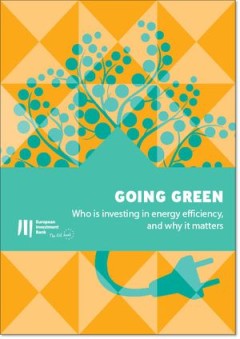
Going green : Who is investing in energy efficiency, and why it matters
Investments in energy efficiency improvements are vital to ensure Europe’s future as a sustainable, yet prosperous economy. Amid the COVID-19 crisis, however, there is a great risk of losing sight of the benefits of energy efficiency investments by European firms. The EIB Investment Survey (EIBIS) provides a unique source of data that highlights how more investment in energy efficiency is nee…
- Edition
- -
- ISBN/ISSN
- 9789286147128
- Collation
- -
- Series Title
- -
- Call Number
- 650
 Computer Science, Information & General Works
Computer Science, Information & General Works  Philosophy & Psychology
Philosophy & Psychology  Religion
Religion  Social Sciences
Social Sciences  Language
Language  Pure Science
Pure Science  Applied Sciences
Applied Sciences  Art & Recreation
Art & Recreation  Literature
Literature  History & Geography
History & Geography